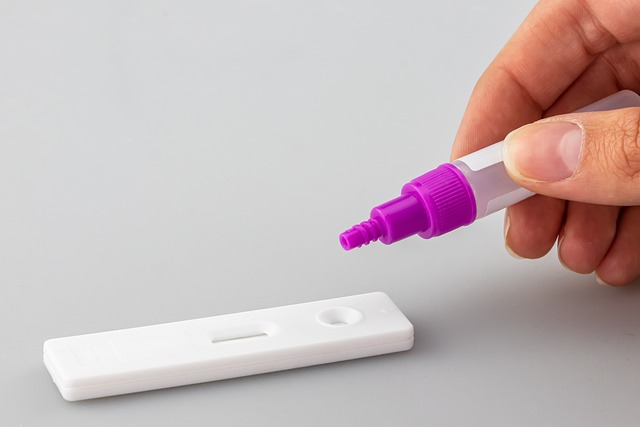Hyaluronic Injections for Knee Pain Treatment in Edmonton
Hyaluronic injections are a treatment option for individuals experiencing knee pain in Edmonton. This method involves injecting hyaluronic acid directly into the knee joint to provide lubrication and cushioning. It is commonly used to alleviate pain associated with osteoarthritis and improve joint function. Understanding the process and outcomes is essential for those considering this treatment.

Understanding Hyaluronic Injections for Knee Pain Relief
Hyaluronic acid is a naturally occurring substance found in the synovial fluid that surrounds joints. Its primary role is to lubricate cartilage and reduce friction during movement. In healthy knees, this fluid acts as a shock absorber, allowing smooth and pain-free motion. However, conditions like osteoarthritis can deplete hyaluronic acid levels, leading to increased friction, inflammation, and discomfort.
Hyaluronic acid injections, also known as viscosupplementation, involve administering synthetic or naturally derived hyaluronic acid directly into the knee joint. The goal is to supplement the depleted fluid, improve joint mechanics, and reduce pain. These injections are typically considered when oral medications, physical therapy, and lifestyle modifications have not provided adequate relief. The treatment is administered by healthcare professionals in clinical settings and may involve a series of injections over several weeks.
Patients considering this option should understand that hyaluronic injections are not a cure for osteoarthritis but rather a management strategy. The effectiveness varies among individuals, with some experiencing significant pain reduction and improved mobility, while others notice minimal change. Factors such as the severity of joint damage, age, and overall health can influence outcomes.
The Mechanism Behind Hyaluronic Acid in Joint Health
The science behind hyaluronic acid injections centers on restoring the viscoelastic properties of synovial fluid. In osteoarthritic knees, the concentration and molecular weight of hyaluronic acid decrease, compromising the fluid’s ability to cushion and protect cartilage. By injecting hyaluronic acid into the joint space, clinicians aim to restore these protective qualities.
Once injected, hyaluronic acid may work through multiple mechanisms. It provides immediate mechanical cushioning, reducing bone-on-bone contact during movement. Additionally, it may have anti-inflammatory effects, potentially decreasing the production of inflammatory mediators within the joint. Some research suggests that hyaluronic acid can stimulate the body’s own production of the substance, though this remains an area of ongoing study.
The molecular weight of the hyaluronic acid used in injections varies among products. Higher molecular weight formulations tend to remain in the joint longer and may provide more sustained relief, while lower molecular weight versions are absorbed more quickly. Healthcare providers select specific products based on individual patient needs, joint condition, and treatment goals. Understanding these mechanisms helps patients set realistic expectations about what the treatment can and cannot achieve.
Potential Benefits and Considerations of Treatment in Edmonton
For Edmonton residents exploring hyaluronic acid injections, several benefits and considerations merit attention. The primary advantage is the potential for pain relief without surgery. Many patients report improved mobility and reduced reliance on oral pain medications following treatment. The injections are generally well-tolerated, with side effects typically limited to mild swelling, warmth, or discomfort at the injection site.
The duration of relief varies considerably. Some individuals experience benefits lasting several months, while others find the effects shorter-lived. Repeat injections may be necessary to maintain symptom control, and healthcare providers often recommend a trial period to assess individual response before committing to long-term treatment.
In Edmonton, hyaluronic acid injections are available through various clinics, orthopedic specialists, and sports medicine centers. Patients should seek qualified healthcare professionals with experience in administering these treatments. Provincial health coverage and private insurance plans may partially cover the cost, though coverage varies. It is advisable to verify insurance benefits and understand out-of-pocket expenses before proceeding.
Not everyone is an ideal candidate for hyaluronic injections. Individuals with infections in or around the knee, bleeding disorders, or allergies to hyaluronic acid products should avoid this treatment. Additionally, those with severe joint damage may find limited benefit, as the injections work best when some cartilage remains intact. A thorough evaluation by a healthcare professional is essential to determine suitability.
Cost Considerations for Hyaluronic Acid Injections
Understanding the financial aspect of hyaluronic acid injections is important for patients in Edmonton. The cost can vary depending on the specific product used, the number of injections required, and the clinic or provider administering the treatment. Generally, a single injection may range from 400 to 800 Canadian dollars, while a full treatment series of three to five injections can total between 1,200 and 3,000 dollars.
Some clinics offer package pricing for multiple injections, which may reduce the overall cost. Private insurance plans often provide partial coverage, though the extent varies by policy. Alberta Health Services may cover hyaluronic injections in specific circumstances, but patients should confirm eligibility and coverage details with their healthcare provider and insurance company.
| Product/Service | Provider Type | Cost Estimation (CAD) |
|---|---|---|
| Single Hyaluronic Injection | Orthopedic Clinic | 400 - 800 |
| Full Treatment Series (3-5 injections) | Sports Medicine Center | 1,200 - 3,000 |
| Consultation and Assessment | Specialist Physician | 150 - 300 |
| Follow-up Appointment | General Clinic | 75 - 150 |
Prices, rates, or cost estimates mentioned in this article are based on the latest available information but may change over time. Independent research is advised before making financial decisions.
Managing Expectations and Long-Term Outcomes
While hyaluronic acid injections offer a non-surgical option for knee pain management, setting realistic expectations is crucial. Clinical studies show mixed results, with some patients experiencing significant improvement and others reporting minimal benefit. The treatment is generally most effective for mild to moderate osteoarthritis and may provide temporary relief rather than long-term resolution.
Patients should view hyaluronic injections as part of a comprehensive treatment plan that includes physical therapy, weight management, and appropriate exercise. Strengthening the muscles around the knee and maintaining a healthy weight can enhance the effectiveness of injections and prolong relief. Regular follow-up with healthcare providers ensures that treatment remains appropriate and adjustments can be made as needed.
For those who do not respond to hyaluronic injections, alternative treatments such as corticosteroid injections, platelet-rich plasma therapy, or surgical options like knee replacement may be considered. Open communication with healthcare professionals about symptoms, treatment goals, and quality of life is essential for making informed decisions.
Conclusion
Hyaluronic acid injections represent a viable option for individuals in Edmonton dealing with knee pain related to osteoarthritis. By supplementing the joint’s natural lubrication, these injections may reduce discomfort and improve mobility for some patients. However, outcomes vary, and the treatment is best suited for those with mild to moderate joint damage. Understanding the mechanism, benefits, limitations, and costs associated with hyaluronic injections enables patients to make informed choices about their care. Consulting with qualified healthcare professionals ensures that treatment aligns with individual needs and health goals.
This article is for informational purposes only and should not be considered medical advice. Please consult a qualified healthcare professional for personalized guidance and treatment.




